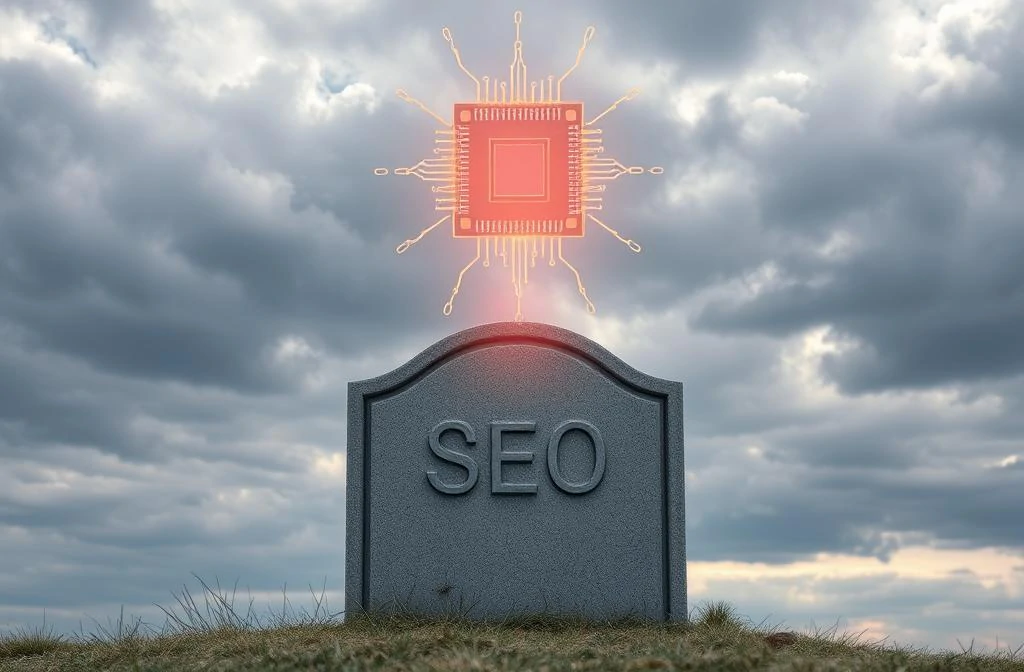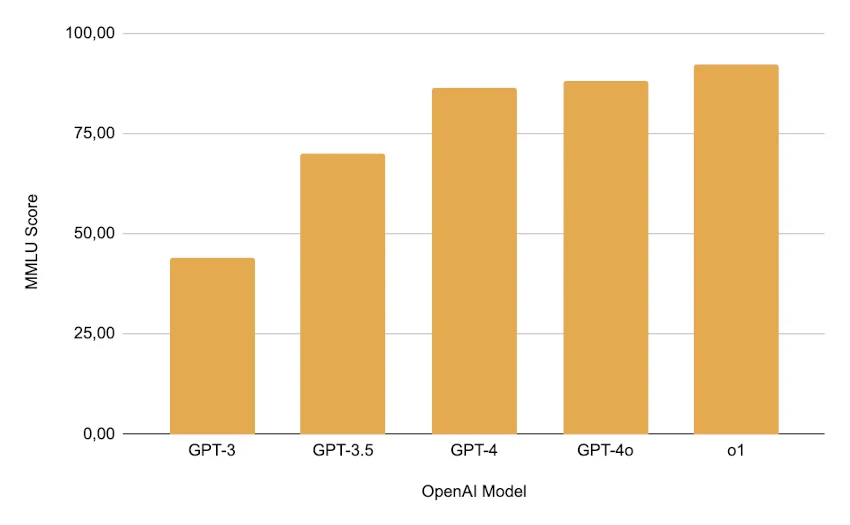
Why AI Is Set To Replace SEO
Nov 15, 2024
The advancement of Artificial Intelligence (AI) is set to change the digital marketing scene, especially in Search Engine Optimization (SEO). The discussion is shifting from whether AI will replace SEO to when this will happen. This article explores the connection between AI technologies, like Large Language Models (LLMs), and the diverse demands of SEO practices.
Large Language Models, including OpenAI's ChatGPT, have shown impressive potential in producing quality and context-aware text.
These models excel in natural language processing. They can create articles, respond to user inquiries, and perform basic SEO tasks.
Notably, LLMs can help with various content-related tasks, such as generating keyword-rich text, structuring content for on-page SEO, formulating meta tags, and crafting compelling headlines.
Despite these advantages, LLMs handle only a part of the extensive requirements that make up SEO.
SEO is a complicated field with practices that vary based on factors such as content type, target audience, and overall business goals.
One major challenge of using a single AI approach to SEO is the need for different strategies for various types of content.
Prominent media organizations prioritize building credible backlinks to boost their domain authority.
This process requires extensive outreach, relationship-building, and effective reputation management, which often need human involvement—tasks that AI cannot handle well.
E-commerce platforms focus on optimizing product descriptions, metadata, and internal linking structures.
These tasks demand an understanding of consumer behavior that changes greatly across different market segments.
This highlights the limitations of applying a one-size-fits-all AI solution to SEO.
Creating engaging blog content involves high-quality writing along with strategically placing keywords and formatting headings.
You also need to consider reader accessibility.
Each blog’s unique audience requires different approaches, complicating the potential for a comprehensive AI-driven SEO solution.
AI has great potential to generate content, but its effectiveness largely depends on how well it is directed through prompts.
Effective prompt engineering involves techniques like Chain of Thought (CoT) reasoning and using Mega Prompts.
These methods break writing tasks into smaller, logical parts and guide the AI with detailed instructions.
When users lack expertise in prompt engineering, it can lead to poor content generation, diminishing the SEO potential of AI tools.
This means that generating SEO-friendly content is more complex than simply asking an AI tool to write an article.
The advancement of AI technology indicates that it's not a matter of if traditional SEO practices will be replaced, but when.
Ongoing advancements in AI enable more sophisticated task execution.
Researchers and developers are constantly pushing the limits of what AI can achieve.
The Efficacy of LLMs in Content Generation
Large Language Models, including OpenAI's ChatGPT, have shown impressive potential in producing quality and context-aware text.
These models excel in natural language processing. They can create articles, respond to user inquiries, and perform basic SEO tasks.
Notably, LLMs can help with various content-related tasks, such as generating keyword-rich text, structuring content for on-page SEO, formulating meta tags, and crafting compelling headlines.
Despite these advantages, LLMs handle only a part of the extensive requirements that make up SEO.
The Complex Nature of SEO
SEO is a complicated field with practices that vary based on factors such as content type, target audience, and overall business goals.
One major challenge of using a single AI approach to SEO is the need for different strategies for various types of content.
Backlinks in Mainstream Media
Prominent media organizations prioritize building credible backlinks to boost their domain authority.
This process requires extensive outreach, relationship-building, and effective reputation management, which often need human involvement—tasks that AI cannot handle well.
Product Optimization in E-commerce
E-commerce platforms focus on optimizing product descriptions, metadata, and internal linking structures.
These tasks demand an understanding of consumer behavior that changes greatly across different market segments.
This highlights the limitations of applying a one-size-fits-all AI solution to SEO.
On-Page SEO for Blogs
Creating engaging blog content involves high-quality writing along with strategically placing keywords and formatting headings.
You also need to consider reader accessibility.
Each blog’s unique audience requires different approaches, complicating the potential for a comprehensive AI-driven SEO solution.
The Role of Prompt Engineering in Crafting SEO Content
AI has great potential to generate content, but its effectiveness largely depends on how well it is directed through prompts.
Effective prompt engineering involves techniques like Chain of Thought (CoT) reasoning and using Mega Prompts.
These methods break writing tasks into smaller, logical parts and guide the AI with detailed instructions.
When users lack expertise in prompt engineering, it can lead to poor content generation, diminishing the SEO potential of AI tools.
This means that generating SEO-friendly content is more complex than simply asking an AI tool to write an article.
The Inevitable Transition towards AI-Dominance in SEO
The advancement of AI technology indicates that it's not a matter of if traditional SEO practices will be replaced, but when.
Ongoing advancements in AI enable more sophisticated task execution.
Researchers and developers are constantly pushing the limits of what AI can achieve.

Performance Progression of OpenAI Models on the MMLU Benchmark
This bar chart compares the performance of various OpenAI models based on their MMLU (Massive Multitask Language Understanding) scores. MMLU is a benchmark used to measure the ability of language models to understand and solve a wide variety of tasks.
GPT-3 scores the lowest, showing the least performance among the listed models. GPT-3.5 has a noticeable improvement compared to GPT-3. GPT-4 shows a significant increase in performance over GPT-3.5. GPT-4o (optimized version of GPT-4) further improves performance slightly. o1 achieves the highest score, showing continued refinement and optimization in the OpenAI model lineup.
The trend points to a clear outcome: As AI becomes more powerful and accessible, it will replace traditional SEO methods.
Tasks that were once exclusive to skilled professionals are gradually being handled by AI systems.
Individuals with a strong background in both SEO and AI prompting can effectively use AI tools across many SEO aspects.
This includes keyword research, content generation, performance evaluation, and reporting.
However, many businesses and individuals lack the knowledge to maximize these AI tools effectively.
This is where preconfigured AI platforms, such as Fieldglass AI, come into play.
Fieldglass AI serves as an advanced solution for simplifying SEO-oriented content creation.
This tool can convert various input sources—like articles, URLs, or raw text—into optimized content.
This makes it easier for users without extensive SEO knowledge.
Fieldglass AI is particularly beneficial for:
Small businesses seeking increased online visibility. Individuals who want to enhance their blog rankings without deep dives into technical SEO. Large enterprises that require scalable solutions for content generation.
Fieldglass AI helps bridge the gap between traditional SEO expertise and the efficiency offered by AI systems.
OpenAI. (2023). ChatGPT: A Transformative AI Language Model. OpenAI. Retrieved from OpenAI's Official Site Crawling Mondays by Aleyda. "The State and Future of Search Q&A with Danny Sullivan, Google Search Liaison", YouTube Papers With Code. Multi-task Language Understanding on MMLU OpenAI. Learning to Reason with LLMs
Search Engine Optimization: Wikipedia
Artificial Intelligence: Wikipedia
Large Language Models: Wikipedia
Moz: The Beginner's Guide to SEO Moz
Search Engine Land: AI and SEO: The Future of Search Search Engine Land
SEMrush: The Impact of AI on Digital Marketing SEMrush
The trend points to a clear outcome: As AI becomes more powerful and accessible, it will replace traditional SEO methods.
Tasks that were once exclusive to skilled professionals are gradually being handled by AI systems.
AI's Role in SEO: Capability with Expertise
Individuals with a strong background in both SEO and AI prompting can effectively use AI tools across many SEO aspects.
This includes keyword research, content generation, performance evaluation, and reporting.
However, many businesses and individuals lack the knowledge to maximize these AI tools effectively.
This is where preconfigured AI platforms, such as Fieldglass AI, come into play.
The Advantage of Fieldglass AI
Fieldglass AI serves as an advanced solution for simplifying SEO-oriented content creation.
This tool can convert various input sources—like articles, URLs, or raw text—into optimized content.
This makes it easier for users without extensive SEO knowledge.
Fieldglass AI is particularly beneficial for:
Fieldglass AI helps bridge the gap between traditional SEO expertise and the efficiency offered by AI systems.